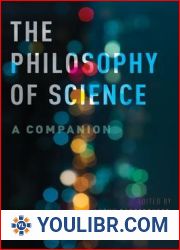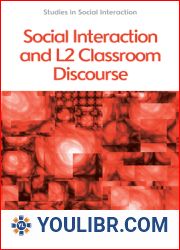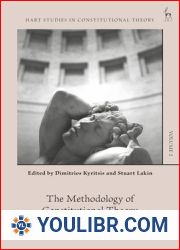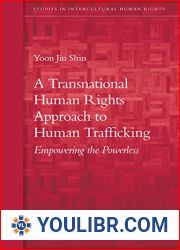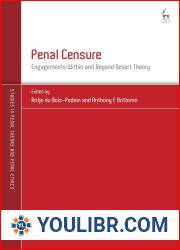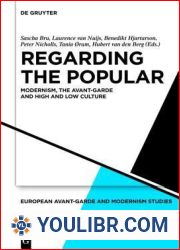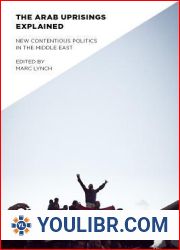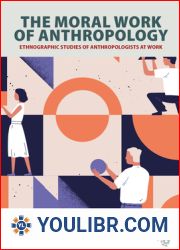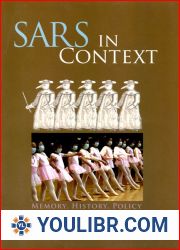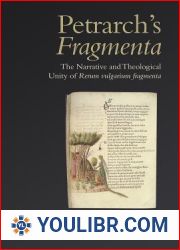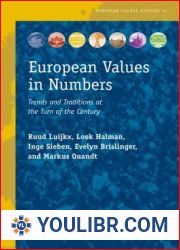
BOOKS - Religion, Disease, and Immunology (Scientific Studies of Religion: Inquiry an...

Religion, Disease, and Immunology (Scientific Studies of Religion: Inquiry and Explanation)
Author: Thomas B. Ellis
Year: November 30, 2023
Format: PDF
File size: PDF 3.3 MB
Language: English

Year: November 30, 2023
Format: PDF
File size: PDF 3.3 MB
Language: English

The book 'Religion, Disease, and Immunology: Scientific Studies of Religion, Inquiry, and Explanation' presents a groundbreaking perspective on the relationship between religion and human health. The author argues that religion has evolved over time as a strategy for managing the transmission, contraction, and eradication of infectious diseases. This book delves into the various ways in which religion influences our physiological, behavioral, and psychological immune systems, providing insights into why humans have an enduring fascination with religion. One of the primary arguments presented in the book is that purity and pollution codes, blood sacrifices, and irrational beliefs are all strategies employed by religion to manage infectious diseases. These practices help to strengthen the physiological immune system, enabling humans to better cope with the challenges posed by pathogens. Moreover, the book explores how religion supports not only the physiological immune system but also the behavioral and psychological immune systems. However, the book also acknowledges instances where religion can become maladaptive, leading to autoimmune problems such as celibacy and antivaccination sentiments. These phenomena occur when religious beliefs interfere with the ability of the immune system to function effectively. To gain a deeper understanding of the human obsession with religion, the author draws upon a range of disciplines, including evolutionary and social psychology, human behavioral ecology, Darwinian medicine, and religious studies. The book provides a comprehensive analysis of the relationship between religion and health, highlighting the significance of this connection for our survival as a species.
Книга «Религия, болезни и иммунология: научные исследования религии, исследования и объяснения» представляет новаторский взгляд на взаимосвязь между религией и здоровьем человека. Автор утверждает, что религия развивалась с течением времени как стратегия управления передачей, сокращением и искоренением инфекционных заболеваний. Эта книга углубляется в различные способы, которыми религия влияет на нашу физиологическую, поведенческую и психологическую иммунную систему, предоставляя представление о том, почему люди постоянно увлекаются религией. Одним из основных аргументов, представленных в книге, является то, что коды чистоты и загрязнения, жертвоприношения крови и иррациональные убеждения - все это стратегии, используемые религией для борьбы с инфекционными заболеваниями. Эти методы помогают укрепить физиологическую иммунную систему, позволяя людям лучше справляться с проблемами, создаваемыми патогенами. Кроме того, книга исследует, как религия поддерживает не только физиологическую иммунную систему, но также поведенческую и психологическую иммунную систему. Тем не менее, в книге также признаются случаи, когда религия может стать неадаптивной, что приводит к аутоиммунным проблемам, таким как целибат и антивакцинационные настроения. Эти явления возникают, когда религиозные убеждения мешают способности иммунной системы эффективно функционировать. Чтобы глубже понять одержимость человека религией, автор опирается на целый ряд дисциплин, включая эволюционную и социальную психологию, поведенческую экологию человека, дарвиновскую медицину и религиоведение. Книга содержит всесторонний анализ взаимосвязи между религией и здоровьем, подчеркивая важность этой связи для нашего выживания как вида.
livre Religion, maladies et immunologie : recherche scientifique sur la religion, recherche et explication présente une vision novatrice de la relation entre la religion et la santé humaine. L'auteur affirme que la religion a évolué au fil du temps en tant que stratégie de gestion de la transmission, de la réduction et de l'éradication des maladies infectieuses. Ce livre explore les différentes façons dont la religion influence notre système immunitaire physiologique, comportemental et psychologique, en donnant une idée des raisons pour lesquelles les gens sont constamment passionnés par la religion. L'un des principaux arguments présentés dans le livre est que les codes de pureté et de pollution, les sacrifices sanguins et les croyances irrationnelles sont toutes des stratégies utilisées par la religion pour lutter contre les maladies infectieuses. Ces méthodes aident à renforcer le système immunitaire physiologique en permettant aux gens de mieux gérer les problèmes créés par les pathogènes. En outre, le livre explore comment la religion soutient non seulement le système immunitaire physiologique, mais aussi le système immunitaire comportemental et psychologique. Cependant, le livre reconnaît également des cas où la religion peut devenir inadaptée, ce qui entraîne des problèmes auto-immunes tels que le célibat et les sentiments anti-accinants. Ces phénomènes se produisent lorsque les croyances religieuses entravent la capacité du système immunitaire à fonctionner efficacement. Pour mieux comprendre l'obsession de l'homme pour la religion, l'auteur s'appuie sur un certain nombre de disciplines, y compris la psychologie évolutionnaire et sociale, l'écologie comportementale de l'homme, la médecine darwinienne et les études religieuses. livre contient une analyse complète de la relation entre la religion et la santé, soulignant l'importance de ce lien pour notre survie en tant qu'espèce.
libro «Religión, enfermedades e inmunología: investigación científica de la religión, investigación y explicación» presenta una visión innovadora de la relación entre la religión y la salud humana. autor sostiene que la religión ha evolucionado a lo largo del tiempo como estrategia para gestionar la transmisión, reducción y erradicación de las enfermedades infecciosas. Este libro profundiza en las diferentes formas en que la religión afecta a nuestro sistema inmunológico fisiológico, conductual y psicológico, proporcionando una idea de por qué las personas son constantemente aficionadas a la religión. Uno de los principales argumentos expuestos en el libro es que los códigos de pureza y contaminación, los sacrificios de sangre y las creencias irracionales son todas estrategias utilizadas por la religión para combatir las enfermedades infecciosas. Estas técnicas ayudan a fortalecer el sistema inmunológico fisiológico, permitiendo a las personas manejar mejor los problemas creados por los patógenos. Además, el libro explora cómo la religión apoya no solo el sistema inmunológico fisiológico, sino también el sistema inmunológico conductual y psicológico. n embargo, el libro también reconoce casos en los que la religión puede volverse poco adaptativa, lo que conduce a problemas autoinmunes como el celibato y el sentimiento antivacunación. Estos fenómenos ocurren cuando las creencias religiosas interfieren con la capacidad del sistema inmunitario para funcionar eficazmente. Para comprender más a fondo la obsesión del hombre por la religión, el autor se basa en una serie de disciplinas, incluyendo la psicología evolutiva y social, la ecología del comportamiento humano, la medicina darwiniana y los estudios religiosos. libro contiene un análisis exhaustivo de la relación entre religión y salud, destacando la importancia de esta conexión para nuestra supervivencia como especie.
Il libro «Religione, malattie e immunologia: ricerca scientifica sulla religione, ricerca e spiegazione» presenta una visione innovativa del rapporto tra religione e salute umana. L'autore sostiene che la religione si è evoluta nel tempo come strategia per gestire la trasmissione, la riduzione e l'eradicazione delle malattie infettive. Questo libro si approfondisce in diversi modi in cui la religione influenza il nostro sistema immunitario fisiologico, comportamentale e psicologico, fornendo un'idea del perché le persone sono costantemente attratte dalla religione. Uno dei principali argomenti del libro è che i codici di purezza e contaminazione, il sacrificio del sangue e le convinzioni irrazionali sono tutte strategie utilizzate dalla religione per combattere le malattie infettive. Questi metodi aiutano a rafforzare il sistema immunitario fisiologico, permettendo alle persone di gestire meglio i problemi creati dagli agenti patogeni. Inoltre, il libro indaga come la religione supporta non solo il sistema immunitario fisiologico, ma anche il sistema immunitario comportamentale e psicologico. Tuttavia, il libro riconosce anche i casi in cui la religione può diventare inadeguata, causando problemi autoimmuni come il celibato e l'antivaccinazione. Questi fenomeni si verificano quando le convinzioni religiose ostacolano la capacità del sistema immunitario di funzionare efficacemente. Per comprendere meglio l'ossessione umana per la religione, l'autore si basa su una serie di discipline, tra cui la psicologia evolutiva e sociale, l'ecologia comportamentale umana, la medicina darwiniana e la religione. Il libro contiene un'analisi completa del rapporto tra religione e salute, sottolineando l'importanza di questo legame per la nostra sopravvivenza come specie.
Das Buch „Religion, Krankheiten und Immunologie: Wissenschaftliche Studien zu Religion, Forschung und Erklärung“ bietet einen wegweisenden Blick auf die Beziehung zwischen Religion und menschlicher Gesundheit. Der Autor argumentiert, dass sich die Religion im Laufe der Zeit als Strategie zur Bewältigung der Übertragung, Reduzierung und Ausrottung von Infektionskrankheiten entwickelt hat. Dieses Buch geht auf die verschiedenen Arten ein, in denen Religion unser physiologisches, verhaltensbezogenes und psychologisches Immunsystem beeinflusst, und gibt einen Einblick, warum Menschen ständig von Religion fasziniert sind. Eines der Hauptargumente des Buches ist, dass die Codes für Reinheit und Verschmutzung, Blutopfer und irrationale Überzeugungen Strategien sind, die von der Religion zur Bekämpfung von Infektionskrankheiten verwendet werden. Diese Techniken helfen, das physiologische Immunsystem zu stärken, indem sie es den Menschen ermöglichen, besser mit den durch Krankheitserreger verursachten Problemen umzugehen. Darüber hinaus untersucht das Buch, wie Religion nicht nur das physiologische Immunsystem, sondern auch das verhaltensbezogene und psychologische Immunsystem unterstützt. Das Buch erkennt jedoch auch Fälle an, in denen Religion maladaptiv werden kann, was zu Autoimmunproblemen wie Zölibat und Impfgegnern führt. Diese Phänomene treten auf, wenn religiöse Überzeugungen die Fähigkeit des Immunsystems beeinträchtigen, effektiv zu funktionieren. Um die Obsession des Menschen mit Religion besser zu verstehen, stützt sich der Autor auf eine Reihe von Disziplinen, darunter Evolutions- und Sozialpsychologie, menschliche Verhaltensökologie, darwinistische Medizin und Religionswissenschaft. Das Buch enthält eine umfassende Analyse der Beziehung zwischen Religion und Gesundheit und unterstreicht die Bedeutung dieser Verbindung für unser Überleben als Spezies.
''
"Din, Hastalık ve İmmünoloji: Din, Araştırma ve Açıklamanın Bilimsel Çalışmaları" kitabı, din ve insan sağlığı arasındaki ilişkiye yenilikçi bir bakış açısı sunuyor. Yazar, dinin zaman içinde bulaşıcı hastalıkların bulaşmasını, azaltılmasını ve ortadan kaldırılmasını yönetmek için bir strateji olarak geliştiğini savunuyor. Bu kitap, dinin fizyolojik, davranışsal ve psikolojik bağışıklık sistemlerimizi etkilediği farklı yolları inceliyor ve insanların neden sürekli olarak dine bağımlı olduklarına dair fikir veriyor. Kitapta sunulan temel argümanlardan biri, saflık ve kirlilik kodlarının, kan fedakarlıklarının ve irrasyonel inançların, dinin bulaşıcı hastalıklarla mücadele etmek için kullandığı stratejiler olduğudur. Bu yöntemler, fizyolojik bağışıklık sistemini güçlendirmeye yardımcı olur ve insanların patojenlerin yol açtığı sorunlarla daha iyi başa çıkmalarını sağlar. Ek olarak, kitap dinin sadece fizyolojik bağışıklık sistemini değil, aynı zamanda davranışsal ve psikolojik bağışıklık sistemini de nasıl desteklediğini araştırıyor. Bununla birlikte, kitap aynı zamanda dinin uyumsuz hale gelebileceği, bekarlık ve aşı karşıtı duyarlılık gibi otoimmün sorunlara yol açabileceği durumları da kabul etmektedir. Bu fenomenler, dini inançlar bağışıklık sisteminin etkili bir şekilde çalışma kabiliyetine müdahale ettiğinde ortaya çıkar. İnsanın dine olan takıntısını daha iyi anlamak için yazar, evrimsel ve sosyal psikoloji, insan davranışsal ekolojisi, Darwinci tıp ve dini çalışmalar dahil olmak üzere bir dizi disiplinden yararlanır. Kitap, din ve sağlık arasındaki ilişkinin kapsamlı bir analizini içeriyor ve bu bağlantının bir tür olarak hayatta kalmamız için önemini vurguluyor.
يقدم كتاب «الدين والمرض والمناعة: الدراسات العلمية للدين والبحث والتفسير» نظرة مبتكرة للعلاقة بين الدين وصحة الإنسان. 3-2 ويقول صاحب البلاغ إن الدين قد تطور بمرور الوقت كاستراتيجية لإدارة انتقال الأمراض المعدية والحد منها والقضاء عليها. يتعمق هذا الكتاب في الطرق المختلفة التي يؤثر بها الدين على أجهزة المناعة الفسيولوجية والسلوكية والنفسية لدينا، مما يوفر نظرة ثاقبة حول سبب إدمان الناس للدين باستمرار. إحدى الحجج الرئيسية المقدمة في الكتاب هي أن قوانين النقاء والتلوث والتضحيات بالدم والمعتقدات غير العقلانية كلها استراتيجيات يستخدمها الدين لمكافحة الأمراض المعدية. تساعد هذه الأساليب في تقوية جهاز المناعة الفسيولوجي، مما يسمح للناس بالتعامل بشكل أفضل مع المشكلات التي تفرضها مسببات الأمراض. بالإضافة إلى ذلك، يستكشف الكتاب كيف يدعم الدين ليس فقط جهاز المناعة الفسيولوجي، ولكن أيضًا جهاز المناعة السلوكي والنفسي. ومع ذلك، يقر الكتاب أيضًا بالحالات التي قد يصبح فيها الدين غير قادر على التكيف، مما يؤدي إلى مشاكل المناعة الذاتية مثل العزوبة والمشاعر المناهضة للتطعيم. تحدث هذه الظواهر عندما تتداخل المعتقدات الدينية مع قدرة الجهاز المناعي على العمل بفعالية. لزيادة فهم هوس الإنسان بالدين، يعتمد المؤلف على مجموعة من التخصصات، بما في ذلك علم النفس التطوري والاجتماعي، وبيئة السلوك البشري، والطب الدارويني، والدراسات الدينية. يحتوي الكتاب على تحليل شامل للعلاقة بين الدين والصحة، يسلط الضوء على أهمية هذا الارتباط لبقائنا كنوع.








 49
49  2 TON
2 TON

![Investigating Second Language Acquisition (Studies on Language Acquisition [Sola]) Investigating Second Language Acquisition (Studies on Language Acquisition [Sola])](https://youlibr.com/img/6/647404_oc.jpg)



